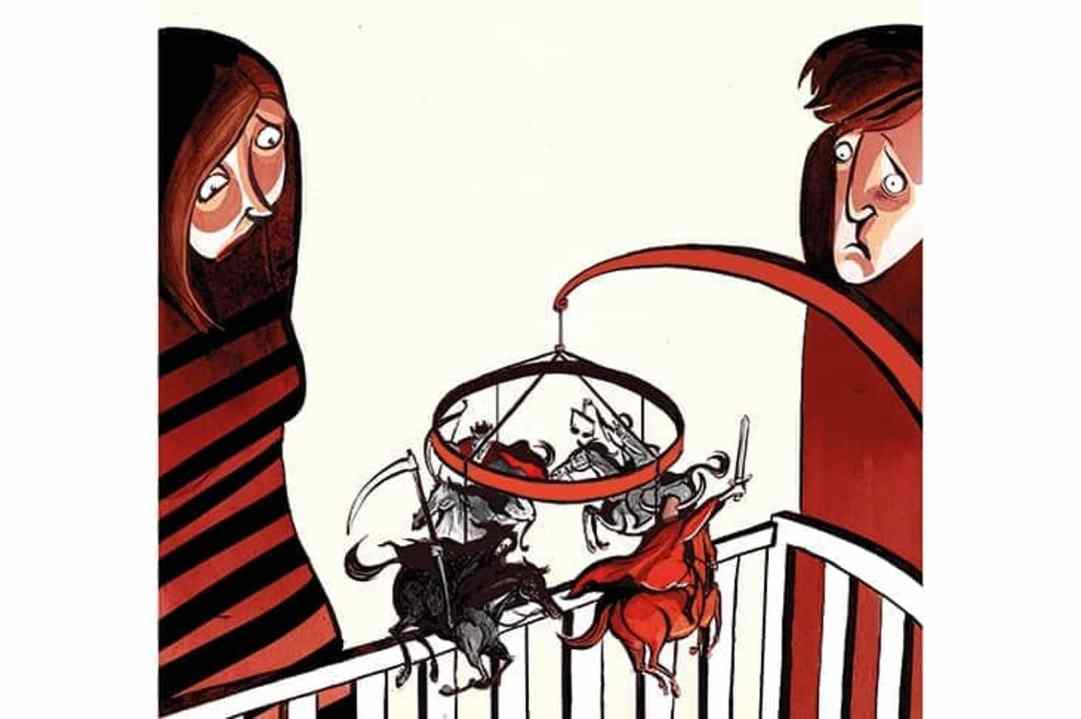Conservatism used to look to the individual, and just as importantly, to the family to cure society’s ills. That no longer seems to be the case. This week Rishi Sunak’s energy package for struggling households saw wealthy pensioners benefit the most, while those with large families and children lost out.
At present the whole tax system is rigged against traditional two parent families, particularly those who get married. Recent analysis conducted by economists at the campaigning outfit, Tax and the Family, found that a couple with two children need to earn more than twice as much as a single childless person to achieve even a basic standard of living. The same couple is likely to pay five times as much tax, largely because our income tax system takes no account of family responsibilities. Even welfare payments are stacked against married couples, with the few hundred pounds handed out to low-income couples through the Marriage Tax Allowance more than swallowed up by the couple penalties in our benefits system.
That struggling families are now at the back of the queue for government support is no surprise when you consider the trajectory of the Conservative party in recent years.
These days Conservative politicians almost seem embarrassed to talk about families and their role in preventing social problems
These days Conservative politicians almost seem embarrassed to talk about families and their role in preventing social problems like poverty or educational decline. In fact, it’s more than ten years since a Conservative cabinet minister last gave a speech promoting marriage. It’s not just on economics that a Conservative government has adopted Corbynite language and policy, on social policy too the party is philosophically adrift.
Part of the reason may be that Westminster politicians fear stigmatising single parents or the unmarried by emphasising the importance of the family. But they are at odds with the British public on this. More than 80 per cent of Brits tell pollsters that stronger families are the answer to Britain’s social problems. And two thirds of single parents think it’s best for children to grow up with both parents around.
This is supported by the data as well. Nearly nine in ten parents who are married are still together when their children sit their GCSEs. The unmarried are three times more likely to separate. Despite this, only last week the Office for National Statistics pumped out new figures showing that marriage rates are at their lowest levels since records began. If current trends continue you would expect marriage to disappear entirely in Britain by 2060.
A few years ago I commissioned the social research agency Savanta ComRes to conduct a whizzy logistical regression looking at the impact of family breakdown. It found that the experience of family breakdown as a child doubles your chances of failing at school, doubles your chances of getting into trouble with the police, and more than doubles your chances of becoming homeless. In the case of homelessness, experience of family breakdown is a greater risk factor than mental health problems or even drug addiction. So why isn’t the government acting to make sure families stay together and are supported?
Conservatism used to recognise that the only sustainable solution to most social problems was to get well ahead of them and do things in advance that prevented the government needing to throw money at the problem later. The Cameron-era welfare fixer, Lord Freud, writes in his book Clashing Agendas that Iain Duncan Smith told him in 2009 that ‘the single most important thing we can do to tackle poverty is to support a stable family life.’ It is hard to imagine a Conservative welfare minister saying that today.
Some of this clearly comes from the top. There was never much hope that Boris Johnson would protect families in government. He did commit to appointing a cabinet level ‘family champion’ during a series of private hustings at the last leadership contest. But there are now three ministers who share responsibility for ‘families’ across government and the official mechanism for assessing the effectiveness of family policy sits in a different department to the minister responsible for championing family in the cabinet. Imagine a transport policy where trains were the responsibility of a different department to tracks.
An entire lexicon has been lost from the Conservative canon. We can’t let it disappear forever and allow a strange sort of elective mutism prevent the party talking up the role of families. When the time comes the next batch of leadership hopefuls should be bold enough (and perhaps conservative enough) to have an unashamed policy for families.







Comments